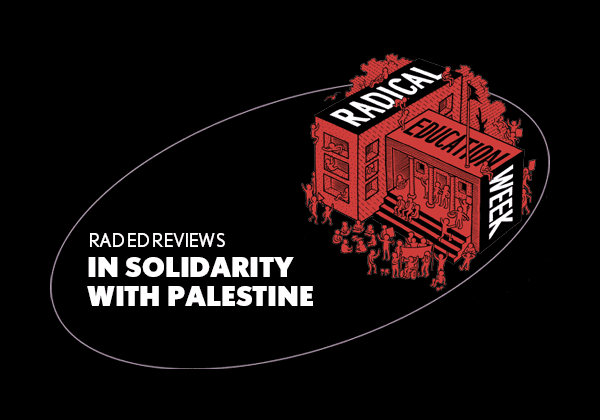Under Israel’s settler-colonialism and apartheid government, Palestinians have struggled to fight for sovereignty for decades. The recent crisis in Gaza and East Jerusalem has escalated the Palestinian struggle, and the need for the international community to express solidarity with the Palestinian people has become crucial to liberation. As part of the Radical Education series, the Towards Liberation: In Solidarity with Palestine panel discussed the future for Palestine under the newly elected Israeli government and addressed the ways that the international community can express solidarity with Palestinians in fighting against dispossession.
Facilitated by Kowther Qashou, the panel discussion featured Jennine Khalik, a Palestinian journalist, writer and activist, Peter Slezak, associate professor of Philosophy at UNSW and deputy convenor of the Boycott, Divestment and Sanction (BDS) Movement and Mahmoud Al Rifai, a USyd Law student and activist.
The Palestinian struggle has been ongoing for a century, dating back to the 1917 Balfour Declaration, where global powers split the land of Palestine and gave half to the European Jews. Today, Palestinians have remained victims of ethnic cleansing and continual displacement known as Al-Nakba. Speaking about the election of a new Israeli government, Khalik highlighted that for every Israeli government, regardless of where they sit on the political spectrum, their course of action is fundamentally to advance the settler-colonial apartheid regime.
The lack of representation of the Palestinian people has remained central to the Israeli government’s strategy in maintaining absolute power and dominance over the land. Khalik further emphasised that a degree of caution should be exercised when giving weight to the action of new Israeli leaders because ultimately, “they don’t represent the Palestinian people whatsoever.” Slezak also highlighted that the “worse the Israeli government behaves, the better it is for the international community,” because it exposes the cruelty towards the Palestinian people inflicted under any Israeli government.
The panelists discussed the possibility of a two-state solution. For Slezak, the “talk of a two-state solution has always been a fraud,” and the motives behind the actions of Israeli governments have “always been different from their pretence.” Al Rifai talked about the “faceless tactics” of Israel’s military occupation and the weaponisation of anti-Semitism as a means to shut down criticism toward Israel. Khalik developed this point by mentioning how “Zionist discourses conflate criticism towards Israel with anti-Semitic rhetoric”. Khalik also highlighted how the two-state solution is impossible to achieve, considering how much Palestinian land has already been expropriated, only resulting in the further legitimisation of Israel’s occupying power.
So what is the solution? And what can we do to take meaningful action in advancing the Palestinian cause?
The solution lies in raising awareness of the ongoing struggle, supporting those in pursuit of Palestinian liberation and standing in solidarity with Palestine. The panellists discussed how the best expression of solidarity is to be outspoken about the Palestinian struggle and normalise conservations about the ongoing crisis. Education about the issue is a crucial part of the solution. Change must come from mobilising and lobbying within the international community. The panel encouraged university students in Australia to openly advocate for Palestinian rights, justice and dignity by pressuring ministers and campaigning within the community. Supporting the Boycott, Divestment and Sanction movement, the Australian Palestine Advocacy Network and organisations that provide humanitarian aid to Palestinian communities will advance the Palestinian cause, and also allow Australians to engage in meaningful action in standing in solidarity with Palestinians.
One of the biggest challenges to understanding and supporting the Palestinian cause is ignorance. By normalising conversations about the situation in Palestine and spreading knowledge and information about the Palestinian struggle, we too can fight for the pursuit of Palestinian liberation and stand in solidarity with Palestine.





